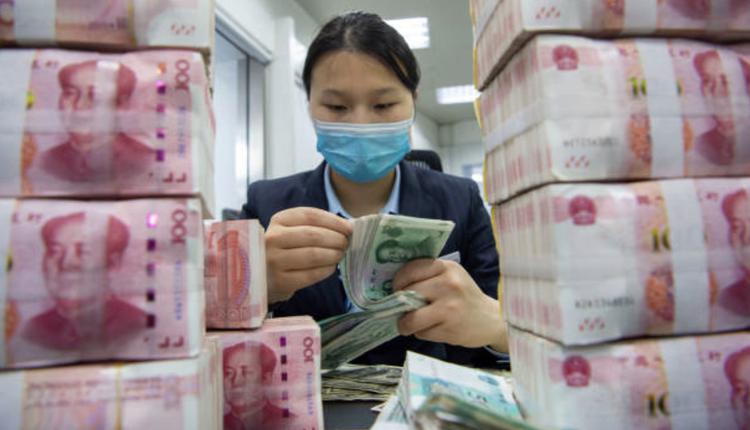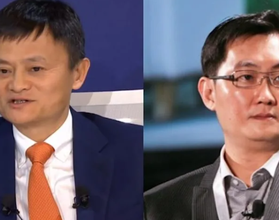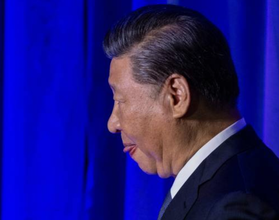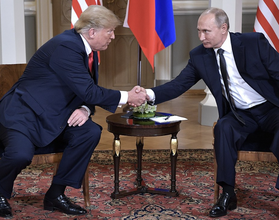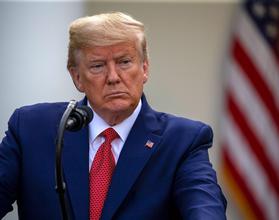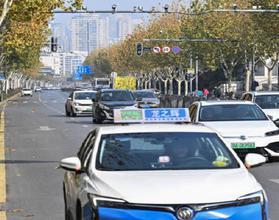據內部人士透露,中國40多年來的驚人發展速度,實際上是依靠巨額債務積累而實現的,相當於在這短短的40年時間裡,提前消耗了300年的資金。曾擔任全國人大財經委法案室主任長達18年的朱少平,在去年9月的一次公開演講中表示,中國國內總債務高達650萬億人民幣,其中政府債務達到319萬億人民幣,企業債務193萬億,居民債務138萬億人民幣。
觀察美國的數據,該國歷經200多年的發展,聯邦政府加地方政府的總負債未超過34萬億美元,折合人民幣約為200萬億。然而,中國政府僅在改革開放的40年間,中央和地方政府負債已高達319萬億。看起來,中國40年的負債規模已超過美國200年負債的總和。
如今我們可以清楚地認識到,中國城市中嶄新的基礎設施、宏偉的新機場、各大城市的摩天大樓和現代化基礎設施,皆是通過中國各級政府的借債實現的。這些建設項目要麼由地方政府借款實施,要麼由當地企業承擔債務進行建設。
根據全國人大的數據,中國中央政府和地方政府的債務總額達到319萬億人民幣。債務與GDP的比例高達1:2.798,遠超美國的1.1875。
根據公布的數據,2022年,至少有70%的省級政府,最多可能達到90%以上的省級政府,在把當年所有可借款的額度,都借出來之後,還是無法支付已經負債的債務利息,更不用說本金了。面對這一局面,中國央行開始印鈔,各金融機構則通過加槓桿向地方政府及其附屬機構貸款。不過,這樣的操作帶來的後果,是相當的恐怖。
今天我們主要來看中國地方政府的債務,這些政府有兩大基本的財源,一個是當地的賣地收入,一個是中央財政的轉移支付。那麼地方政府是怎麼用這兩大塊來借錢的呢?
2016年中央政府規定,不允許地方政府用沒有經過一級開發的土地,去銀行進行抵押貸款了。但是之前,地方政府大量進行這種操作,中央政府也是睜一隻眼閉一隻眼,原因就是因為地方的稅都上交了中央,為了讓地方政府有資金進行投資建設,對這種踩紅線的事情,就沒有嚴加管理。根據知乎上的計算,這類貸款累積到現在,數量已經達到了100萬億元。
那麼地方政府用土地抵押借來的貸款和利息,最後都是怎麼還上的呢?這就要談到依靠賣地的收入了。地方政府擁有土地,土地招拍掛轉讓,得來的收益,進了地方政府的賬戶,可以被用來還銀行貸款的本金和利息。因此說,土地能不能賣出好價錢,是地方政府能不能還上銀行貸款本息的關鍵。
問題是最近幾年房地產市場需求下降,地方政府的土地招拍掛出現了底價成交和大量流拍的現象。按照中國土地招拍掛的規則,一旦出現流拍,就要降價拍賣。土地幾次降價後,也會導致原來抵押土地的評估值跟着下降了。這就影響到了,地方政府當初和銀行簽的貸款合同。銀行發現地方土地估值下降,就會要求地方政府提供更多的抵押物,如果地方政府不能滿足到銀行的要求,就會被要求提前歸還本金和利息。這很讓地方政府很頭疼。
怎麼辦呢?市場上沒有開發商願意買地,那就讓政府全資擁有的城投公司上陣吧,讓城投公司或者當地的國有開發商,參與土地的競拍,保住土地的價格。這樣地方政府有了買地的收入,歸還欠金融機構本金和利息就沒問題。
What is the solution? When no private developers are willing to purchase land, local governments can rely on their wholly-owned urban investment companies (or local state-owned developers) to participate in land auctions and maintain land prices. In this manner, local governments can secure income from land sales, enabling them to repay the principal and interest owed to financial institutions.
但是城投公司也缺錢,為了能買地方政府的地,就發行了城投債借錢。地方政府發行的公債,也可以注入城投,來購買地皮,而且地方政府的債券息低到4%。
However, urban investment companies may also lack funds. To acquire land from local governments, they issue urban investment bonds to borrow money. Local government bonds can also be used to facilitate land purchases by urban investment companies, with bond yields as low as 4%.
城投公司買了地之後,如果要開發新房,那麼新房的價格就不能下跌,這樣才能保證城投公司能收回建設成本,還能有餘力去歸還城投債,還能有餘力購買政府的其餘的土地。為了達到這個目的,各地政府紛紛出台了限制新房價格下跌的政策,此外中央財政也要求金融機構,向地方政府提供貸款,購買地方政府關聯公司建設的新房,保證城投公司能還上城投債的利息,接下來還能購買地方政府的土地,地方政府也能還上欠金融機構的本金和利息,這個運轉的鏈條就不會斷了。
Once urban investment companies purchase land, they cannot allow the prices of new homes to decrease. This is crucial for the companies to recover their construction costs, have enough resources to repay urban investment bonds, and be able to purchase additional land from the government. To achieve this, local governments have implemented policies to limit the decline in new home prices. Additionally, the central government has instructed financial institutions to provide loans to local governments for the acquisition of new homes built by government-affiliated companies. This ensures that urban investment firms can repay the interest on their bonds, allowing them to continue purchasing land from local governments. This, in turn, enables local governments to repay the principal and interest owed to financial institutions, thereby maintaining the continuity of this chain of transactions.
如果這些買下地方政府地皮的城投公司,不開發這塊地,2年之後,地皮就會被政府收回。政府再推出新地皮,城投公司就繼續買地,也是通過發城投債,獲得買地的資金。這樣下去,城投公司每次都少了一塊地皮的錢,地方政府債和城投債越積越多。
If urban investment companies fail to develop the land they purchase from local governments, the government will reclaim it after two years. The government will then release new land, and urban investment companies will continue to buy land by issuing urban investment bonds to obtain funds for land purchases. In this way, urban investment companies lose money on each piece of land, and local government debt and urban investment debt accumulate over time.
在中國的知乎網站上,人們從不同的角度對中國城投公司的負債規模進行了估算,最低的數值是60萬億元。如果把城投公司發行的商票,把沒有公示的擔保和很多隱形的東西都計算上,僅僅中國各地區的城投公司,負債就可能超過100萬億。
On China’s Zhihu website, people have estimated the debt scale of Chinese urban investment companies from different perspectives, with the lowest figure being ¥60 trillion. If commercial paper issued by urban investment companies, unpublicized guarantees, and many other hidden items are taken into account, the debt of urban investment companies in various regions of China may exceed ¥100 trillion.
地方政府另外一部分收入來源,是中央財政的轉移收入,大部分也是中央政府通過赤字或發債獲得的。赤字就是央行把錢印出來,借給中央政府的錢,理論上這筆錢中央政府是要還給央行的。發債就是中央政府發行國債,比如特殊國債,專項國債,目的是向社會上的金融機構和社會大眾借款。中央政府拿到了借來的錢,轉移支付給地方政府。因此地方政府的這部分收入也是借來的。
Local governments in China also receive transfer payments from the central government, which are mostly obtained through deficits or issuing bonds. Deficits refer to the money printed by the central bank and loaned to the central government, which in theory should be repaid to the central bank. Issuing bonds means that the central government issues treasury bonds, such as special national bonds and special-purpose national bonds, to borrow money from financial institutions and the public. The central government then transfers the borrowed money to local governments. Thus, this portion of local government income is also borrowed.
現在中央銀行開動了印鈔機,但是也不敢印太多,人民幣別看不能自由兌換,它也是國際貨幣體系的一員,印多少錢必須通告,哪能隨便印錢?但是中國的金融機構,可以對負債施加槓桿。
The central bank is currently increasing the money supply, but it must be careful not to overdo it. Although the Renminbi (RMB) is not freely convertible, it is still part of the international monetary system, and the amount of money printed must be disclosed; it cannot be printed casually. However, Chinese financial institutions have the ability to leverage off their debts.
中國負債的槓桿放大相當可怕,舉個例子,某城投公司A,用自己下面的土地經過評估做了抵押,向B銀行借了流動現金,這份抵押土地的已經出現的借條,可能又會在銀行的主導下,由A城投公司和B金融機構共同,向C投資信託公司發行信託基金,然後C投資信託公司發行的信託基金,又會被當作發起人資金,再發行股權私募基金D。
China’s use of debt leverage is quite concerning. China’s debt market leverage issue is quite concerning. As an example, consider Urban Investment Company A, which uses its own land as collateral after an evaluation and borrows liquid cash from Bank B. The debt generated from the collateralized land may then, under the guidance of Bank B, be jointly used by Urban Investment Company A and Financial Institution B to issue a trust fund to Investment Trust Company C. Subsequently, the trust fund issued by Investment Trust Company C could be treated as the initiator’s capital and be used to issue a private equity fund, Fund D.
城投公司僅僅是對這個土地進行了評估,然後進行抵押,但是卻從這麼多的來源,獲得了資金,這個就叫槓桿。
In this situation, Company A merely assessed and used the land as collateral, but still managed to obtain funds from various sources. This process is known as leverage.
通過槓桿放大借來的資金,投到社會上,可能會被用來購買產品,購買服務,僱傭人員,等於是活躍了社會的經濟,產生了繁榮的景象。不過從另一方面說,如果城投公司A,不能從活躍社會經濟的最終收益中,拿到本金和利息的收益,就會導致借給他錢的B銀行存款人,C投資信託公司的投資人,D 股權私募基金的投資人,他們的資金就會遭受重大的損失。
By leveraging borrowed funds and investing them into society, it is possible that these funds are used to purchase products, services, and hire personnel, ultimately stimulating the economy and creating a prosperous environment. However, on the other hand, if Urban Investment Company A is unable to generate sufficient returns from the economic activities to cover the principal and interest payments, it can result in significant losses for various parties involved, such as depositors of Bank B, investors in Investment Trust Company C, and investors in private equity fund D.
前幾年習近平還沒有完全獨裁的時候,中國高層也看到了主動借債的瘋狂發展模式帶來的恐怖結果,當時國務院最大限度的推行降低風險,降槓桿。採取的一個重要措施就是利用股市解決這個問題,把所有可能產生槓桿風險的公司,地方政府涉及到的企業,金融機構涉及到企業和個人,都通過股市解決。
In the years before Xi Jinping fully assumed his autocratic role, the Chinese elite had already recognized the alarming consequences of their nation’s frenzied, borrowing-driven growth model. In response, the State Council vigorously promoted risk reduction and deleveraging to the greatest extent possible. A crucial measure in this effort was utilizing the stock market to address the problem, aiming to resolve potential leverage risks for all companies, local government-related enterprises, and individuals involved with financial institutions.
中國股市當時有大量的IPO直接融資,幫助企業把把貸款還了,把發的債還了,負債的槓桿降了下來,很多沒有暴露在公眾視野中的隱形槓桿,都降了下來,這也是中國股市一直跌的這麼厲害的原因,發展這麼多年的股市,從最高的6000多點到現在的3000點,全世界都沒有過的奇景,就是因為直接融資都去還債,降槓桿了。
At that time, the Chinese stock market had a large number of IPOs for direct financing, which helped companies repay their loans and debts, including hidden debts, thus reducing their leverage. This is one of the reasons why the Chinese stock market has experienced such a significant decline over the years, going from its peak of over 6,000 points to around 3,000 points currently. This unusual phenomenon has not been seen elsewhere in the world and is mainly due to direct financing being used to repay debts and reduce leverage.
但是相對於已經650多萬億的龐大的負債市場,這些降槓桿的方式和手段現在能實施的,算是杯水車薪。
However, compared to the massive debt market of over 65 trillion RMB, the current methods and means of reducing leverage are akin to a drop in the bucket.
面臨需要還得債越來越多,中共就拼命的放貸,把全社會所有能夠用的資源和信譽,都換成錢還債。而且很多城投公司借債的時候,讓地方政府把能抵押的,能擔保的東西都抵押出去了,地方政府不僅是地下管道,連大樓都已經全抵押貸款出去,很多中國的地方政府實際上就是個空架子。對此,銀保監會去年年底發布了文件,防止地方政府把整個城市的水管電網等所有基礎設施都抵押掉。只是已經遲了一步,從公開的資料查詢,中國地方政府已經把所有能抵押的東西幾乎全都抵押了。
Faced with an ever-growing debt repayment burden, the CCP has increased lending and converted all available resources and creditworthiness into funds for debt repayment. In many cases, local governments were forced to mortgage and guarantee everything they could when borrowing through urban investment corporations. Not only were underground pipelines mortgaged, but entire buildings were also put up as collateral, leaving many local governments in China as mere empty shells. In response, the China Banking and Insurance Regulatory Commission issued a document late last year to prevent local governments from mortgaging all of their urban infrastructure. However, it was a step too late, as public records show that Chinese local governments have already mortgaged almost everything they could.
中國以前特別害怕的內保外貸的借貸方式都開始用上了,內保外貸借貸方式就是允許房地產境內的擔保在境外進行融資,這比銀行貸款恐怖的多,內保外貸是曾經 讓中國的金融體系吃過大虧,現在竟然能開放,就能想象到現在借貸的瘋狂。
China, which was once wary of outbound guarantees, has now started to embrace them. This approach enables domestic real estate guarantees to secure financing from abroad, a strategy that carries far more risks than traditional bank loans. In the past, outbound guarantees had inflicted significant losses on China’s financial system. The recent resurgence of this practice highlights the current frenzy of borrowing, raising concerns about its long-term consequences.
這樣做的結果從短期看,會緩解一大部分經濟發展的風險壓力,部分緊急用錢的地方確實有資金來了,確實也能把槓桿降了。但是從長期看,中國改開40年,都看不到一個真正的任何的,具備可持續發展的經濟模型,讓這個社會的經濟持續運轉下去,除了外貿出口,任何能給中國經濟發展提供動能的,真正的有實力的支柱型產業,統統都沒有。沒有美國的高技術產業,沒有英國歐洲的傳統商業
。In the short term, this strategy serves as a balm to assuage a considerable portion of the risk pressures entwined with economic development, delivering much-needed financial relief to certain regions and adeptly curbing leverage. However, in the long run, after four decades of China’s relentless pursuit of reform and opening up, it still lacks a sustainable economic paradigm capable of carrying the nation’s economic vitality. Apart from the lifeblood of foreign trade exports, China’s economic tapestry is devoid of any formidable pillar industries that could galvanize its developmental momentum. The nation lags behind, overshadowed by the United States’ high-tech prowess and the time-honored traditional commerce of the United Kingdom and Europe.
這個國家40年的發展都是在透支未來,各地方政府把所有能夠賣的土地都賣掉了,不能賣的土地也抵押掉了,所有能夠用來抵押擔保借錢的,都抵押了,把所有借的錢也全借了,所有借錢的方式都用盡了。這些資金,流向了中國政府統治的社會,造成了虛假繁榮,中國政府給他起了個好名字,叫通過投資拉動經濟發展。但是這裡面實際上只有投資,沒有拉動經濟,拉動的是所謂的繁榮,並沒有形成任何能保證14億人口生存發展需要的相關產業。
China’s development over the past 40 years has been built on borrowing from the future. Local governments have sold off all available land and mortgaged what they could and what they couldn’t! Now the borrowed money has been exhausted, with all means of borrowing depleted. These funds have poured into the Chinese economy, creating a false sense of prosperity. The government has named it “stimulating economic development through investment,” but in reality, it has only created investments without real economic stimulus or industries capable of meeting the needs of 1.4 billion people.
把西方能夠拉動經濟發展的產業,拿過來對比對比,就會發現中國沒有形成像樣的產業。中國軟件行業行嗎?不行,汽車行業整體行嗎?不行,民航產業整體行嗎?不行,互聯網產業整體行嗎?不行。人工智能產業行嗎?不行。精密機床產業行嗎?不行,遍布全世界的金融領域,中國發展的行不行,也不行。
China’s industries do not compare with those of the West that drive economic development. It has yet to form any reputable and mature industries, from software to automotive, civil aviation, internet, artificial intelligence, or precision machine tool. Even in the global financial sector, China’s development is not up to par.
沒有能還債的產業,中國各地方政府就必須想辦法延期債務,因此銀行系統的資深人士,已經上任了若干城市的副市長主管金融。這些新的副市長,在銀行業有人脈關係,有資源關係,將會儘可能地,對地方政府持有的負債進行展期和重組。然而,這也只是把還錢的日期往後推了。
Without industries capable of repaying debts, local governments in China must find ways to postpone them. In response, seasoned banking professionals have taken up positions as deputy mayors in charge of finance in several cities. These new deputy mayors, with their banking industry connections and resources, will do their best to extend and restructure local government debt. However, this merely postpones the repayment date.
假設地方政府真的還不了債了,中國現在的金融機構也是沒有任何辦法的。持有地方政府債務,城投債和隱形債務的,往往是地方的銀行,證券,保險,信託公司的小額貸款公司,面對這些債務在未來可能的違約,央企和國資背景的大量機構,基於風險評估,正在瘋狂拋售這些金融機構的股權。這些地方的小型金融機構,未來的厄運幾乎是沒有挽回餘地,如果倒閉和重組,最終會有大量的儲戶,和投資人的錢拿不回來。
If local governments are unable to repay their debts, China’s current financial institutions have no solution available. Local banks, securities firms, insurance companies, and small loan companies often hold local government debt, urban investment bonds, and hidden debts. Many institutions with state-owned enterprise backgrounds are selling their equity in these financial institutions due to risk assessments. The future of these local small financial institutions is almost irreversible, and if they collapse or restructure, a large number of depositors and investors may not be able to recover their money.
說實在的,別說中國共產黨這種超級無能的執政團隊,就是整個地球上其他所有現存的統治團隊,面對中國用40多年挖掘起來大坑,都不可能提出任何更好的解決方案。2023年習近平如果沒有可能讓中國進入戰時經濟,實施全面的軍事管理,那他就只能通過瘋狂的印錢,來做破產前的最後掙扎。
It is suggested that there are no real solutions to the social and economic crises caused by policies implemented by the Chinese leadership over the past four decades. Some analysts believe that no leader or party of other countries would have any better ideas in addressing these problems. If certain measures, such as a wartime economy or military management, are not implemented by Xi Jinping by 2023, it is predicted that resorting to excessive money printing may be the only option to avoid the great China collapse.
本文由看新聞網原創、編譯或首發,並保留版權。轉載必須保持文本完整,聲明文章出自看新聞網並包含原文標題及鏈接。

